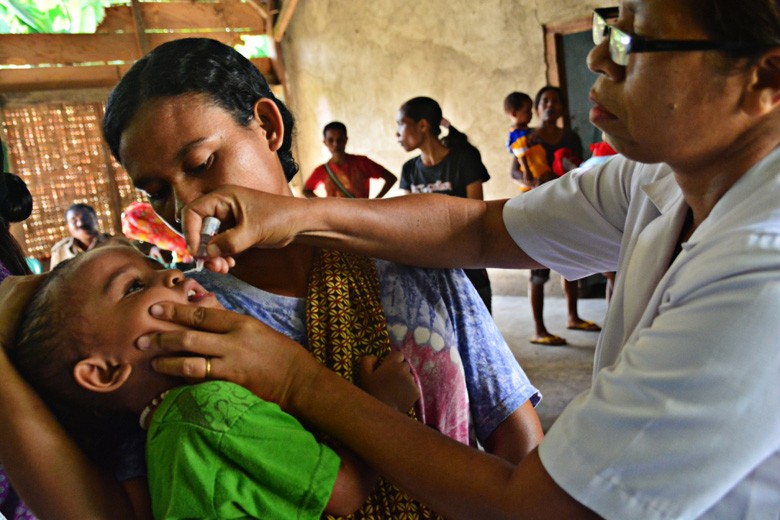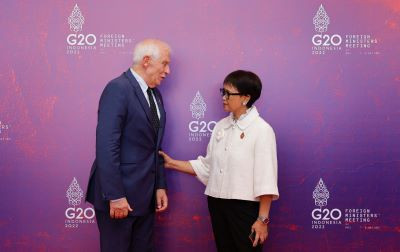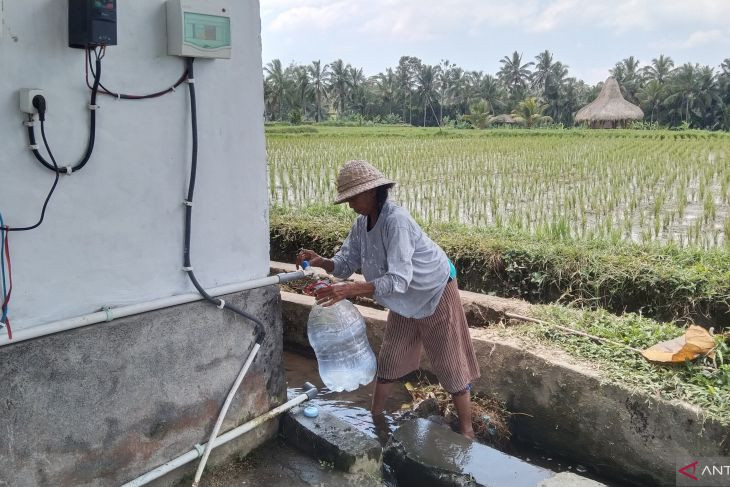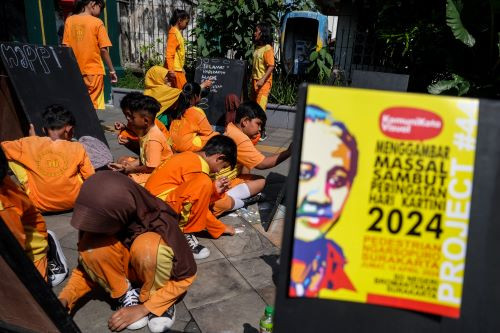Eliminating diseases does not mean ‘mission accomplished’
With a large number of people needing protection, the government must prepare more resources to campaign more aggressively on the benefits of vaccines and to ensure people’s wider access to quality immunization care services. #commentary
Change Size
 For healthier children – A health official from community health center Puskesmas Waelengga in Watunggene sub-district, Kota Komba district, East Manggarai regency, Flores, East Nusa Tenggara, drops polio vaccines to an under five year old baby during the 2016 National Immunization Week (PIN) for polio. (thejakartapost.com/Markus Makur)
For healthier children – A health official from community health center Puskesmas Waelengga in Watunggene sub-district, Kota Komba district, East Manggarai regency, Flores, East Nusa Tenggara, drops polio vaccines to an under five year old baby during the 2016 National Immunization Week (PIN) for polio. (thejakartapost.com/Markus Makur)
A
lthough Indonesia was certified polio-free on March 27, 2014, authorities are still battling to keep the disease away from the country. As it is highly contagious, polio remains a public health concern, potentially leading to permanent paralysis and even death. The poliovirus can mutate rapidly and cause more paralysis, thus remaining a threat to polio eradication. The recent discovery of three poliomyelitis cases in Yahukimo, Papua, which borders with Papua New Guinea (PNG), where a vaccine-derived polio outbreak was declared, has become a wake-up call for the government to stay vigilant against the disease.
As PNG was declared polio-free almost two decades ago in 2000, obviously polio could easily return unless countries can ensure high levels of immunization coverage to avoid mutated strains of polio vaccine and prevent wild poliovirus transmission from other countries. A persistently low immunization level of about 60 percent has been blamed for the vaccine-derived polio outbreak in PNG, which has seen 26 confirmed polio cases in children from nine provinces in PNG since the outbreak was announced on June 26, 2018.
Soon after three polio cases were discovered in Yahukimo, the Health Ministry launched an outbreak response immunization (ORI) for two weeks in the regency to prevent transmission of the disease, particularly threatening children living in poor hygiene and sanitation conditions. The ORI aimed to immediately boost Papuans’ immune systems. However, as the government failed to achieve the expected immunization coverage, it held a Subnational Immunization Week against polio, known as Sub-PIN Polio, in Papua and West Papua.
In West Papua, the first phase of the campaign was conducted from April 1 to 7 and the second round was from April 29 through May 5. In Papua, the first stage of Sub-PIN Polio took place from March 19 to 25, while the second round is to conclude this weekend on June 30.
Prevention of the potential epidemic is indeed urgent because as of the end of 2018, Afghanistan and Pakistan still had 30 reported cases of wild poliovirus type 1, according to the World Health Organization (WHO). Along with Nigeria, they are the world’s last three polio endemic countries. Although polio has been cast out from most countries thanks to immunization campaigns, the emergence of mutated strains within the polio vaccine, including last year’s outbreak of circulating vaccine-derived poliovirus type 1 in PNG, shows it is still too soon to say “mission accomplished” in the global fight against polio.
Children in some countries, including in Indonesia, are still missing opportunities for vaccination, according to WHO, meaning polio and other old diseases, such as diphtheria and measles, could attack any time. In this year alone, measles cases quadrupled from January to March in several countries, which was blamed on declining measles vaccine coverage. About 1.5 million children worldwide die every year because of vaccine-preventable diseases, WHO says. In 2018, about 20 million children around the world had not yet received their full course of routine immunizations or had not received any vaccinations at all.
This situation has led to extraordinary occurrences of vaccine-preventable diseases such as diphtheria, measles and polio in many areas in the past few years. According to the Health Ministry, full basic immunization coverage in Indonesia was only at 87.8 percent in 2018, leaving about 12 percent of children, some 400,000, still missing their complete cycle of basic immunization. Meanwhile, 1 percent of the country’s children did not get vaccinated at all.
Children without complete vaccinations are evenly distributed in almost all areas across Indonesia; but Aceh and West Sumatra, as well as areas in eastern Indonesia, draw special concerns because of their stubbornly low immunization coverage, including their poor achievements in the recent measles and rubella mass immunization campaign.
Arifianto, a pediatrician and member of a task force on epidemics at the Indonesian Pediatric Society (IDAI), said authorities should not only focus on eliminating the disease. Once the “eliminated status” is achieved, he said, the next goal is to prevent the disease from reemerging and becoming an epidemic.
“If the immunization coverage is still short of the 95 percent goal, a disease still has an epidemic potential. It can explode into an epidemic any time. We will never be able to precisely predict when it will happen. This is actually what we’re worried about from the current coverage level of our full basic childhood immunization,” Arifianto said on May 18.
Given close interaction between the immunization coverage and the illness rate of a particular disease in an area, extra efforts such as the ORI and Sub-PIN Polio campaigns are commendable as attempts to push down such disease threats in areas with low immunization coverage.
However, the government must be able to tackle head-on challenges in immunization campaigns, including poor understanding of the value of vaccination among parents and negative perceptions of vaccines from the antivaccine movement, which cites religious beliefs and scares people with the potential harm of vaccines on children, despite a lack of evidence.
With a large number of people needing protection, the government must prepare more resources to campaign more aggressively on the benefits of vaccines and to ensure people’s wider access to quality immunization care services.










